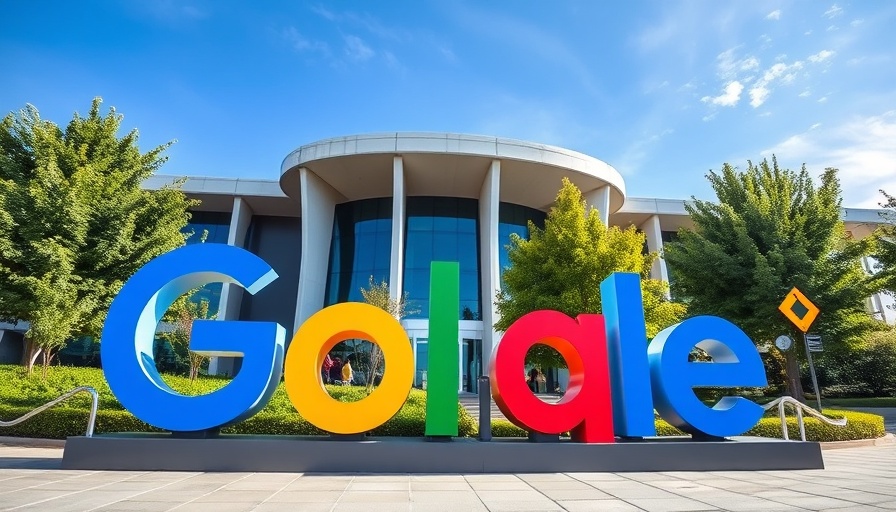
The End of a Legal Battle: DOJ Drops Google AI Divestment Bid
In a significant shift, the U.S. Department of Justice (DOJ) has decided to drop its proposal that would have forced Google to divest its investments in artificial intelligence companies such as Anthropic. This development marks a turning point in the ongoing antitrust case against the tech giant, with implications not only for Google but for the entire AI landscape.
The Background: Why Did This Proposal Come About?
The concerns regarding Google's dominance in the AI sector have been exacerbated by the increasing scrutiny of Big Tech companies. With Google holding a substantial stake in Anthropic—an AI competitor to OpenAI—the DOJ initially believed that forcing divestment could enhance competition in online search. Google’s position raised alarms about their potential monopoly power, pushing regulators to consider drastic measures.
What Changed? The Problem with Divestment
According to prosecutors, new evidence indicated that forcing Google to sell its AI assets might lead to unforeseen consequences in the rapidly evolving AI domain. The implications of divesting from significant AI investments could hinder innovation and ultimately disrupt the competitive landscape of the technology sector. This realization led to the DOJ’s decision to revise its approach, pivoting towards a more strategic oversight of future investments instead.
Future Prospects: Balancing Competition and Innovation
While the DOJ has relaxed its aggressive stance on AI divestment, it will continue to pursue a court order aimed at addressing Google's dominance in the online search space, specifically its Chrome browser. Prospective measures include requiring Google to report future investments in AI, ensuring that their position does not distort market competition. Observers speculate that this could set a precedent for similar cases against other tech giants like Apple and Amazon, highlighting the critical balance between fostering innovation and maintaining competitive markets.
The Broader Context: AI and Antitrust
The DOJ’s approach to Google’s AI investments highlights an ongoing dialogue about how best to manage the influence of large corporations in emerging technologies. As the world becomes increasingly dependent on AI, understanding the implications of such decisions is vital. For enthusiasts and practitioners in the AI field, this case promises to shape the regulatory environment in which innovation occurs.
Implications for AI Enthusiasts
For AI lovers and professionals, the resolution of such antitrust cases is crucial. The health of the AI industry depends on strong competition, which fosters innovation and brings about new advancements. The decision to avoid divestment may allow Google to continue investing in AI, paving the way for exciting developments in the near future while still acknowledging the concerns regarding their market power.
Your Takeaway: What This Means for AI
As we look ahead, it’s essential for AI lovers to stay informed about regulatory changes that may affect the industry. The DOJ's decision can serve as a guidepost in understanding the delicate balance between encouraging innovation and maintaining a fair marketplace. Staying attuned to these developments will help all involved—whether as creators, consumers, or stakeholders—navigate the fast-evolving world of artificial intelligence.
 Add Row
Add Row  Add
Add 




 Add Row
Add Row  Add
Add 

Write A Comment